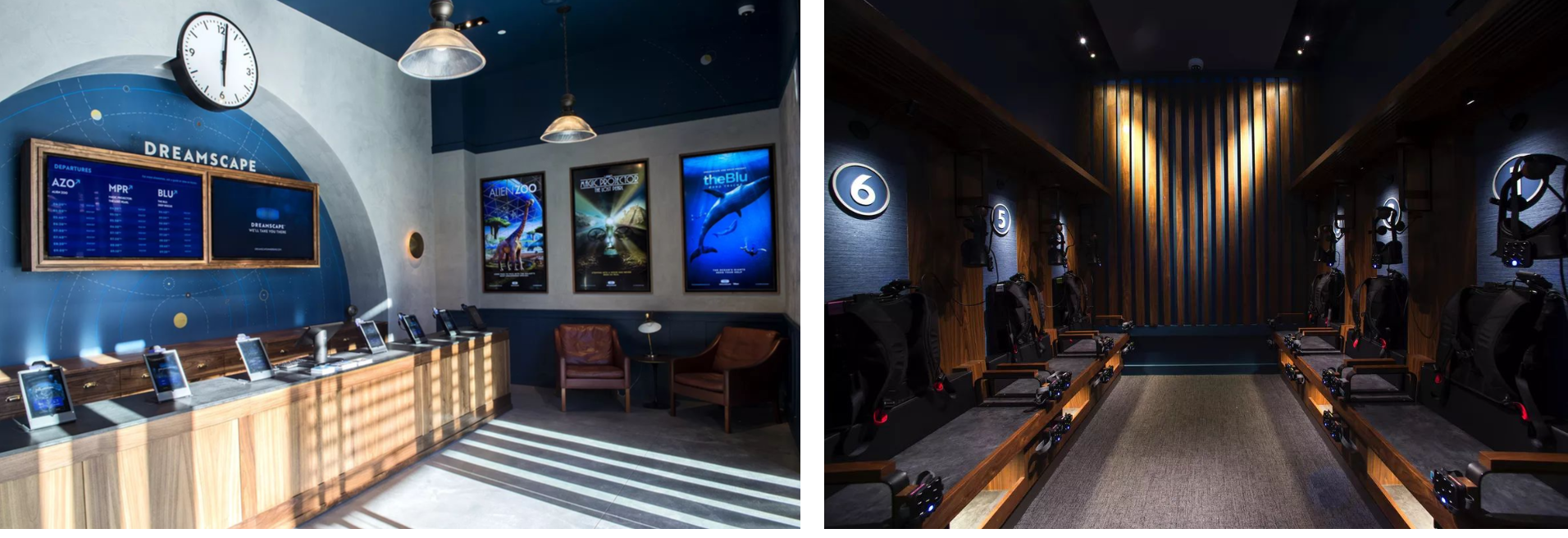Markets: Esports + Real Estate
Global esports revenues will surpass $1bn for the first time in 2020. The real estate world cannot afford to ignore this accelerating industry, with a 500 million person audience shaping markets through employment, new retail and entertainment models, and evolving paradigms around how we interact.
We identified several opportunities for Jamestown consideration in the gaming and esports space:
Office Product for E-sports Industry: Develop in-house expertise to execute on the unique office needs of those in the gaming industry: advanced connectivity, media production space, location relevance.
Location-Based Augmented Reality: Boost the relevance of Jamestown locations through place-based events and marketing as more augmented reality (AR) games introduce virtual environments into physical spaces (e.g. Pokemon Go). Niantic is a company that enables property owners to market via AR games.
Gaming Cafes and Stadiums - “Virtual World Theater”: Create physical settings that enable gamers to congregate and either play or view gaming activities. Introduce a more design-forward approach that widens the appeal to non-traditional gamers and captures a new form of socializing.
Real Assets Gone Virtual: Licence the brands of Jamestown properties in virtual worlds such as Sims City, Animal Crossing, or Minecraft (/sync with shopping or transaction experiences e.g. a virtual Chelsea Market). Work with multi-player games that allow for virtual socializing at Jamestown properties.
1- Office Product for E-sports Industry
Growth:
Interest in e-sports jobs spiked 20% in 2019
Introduction of new roles -- e.g. search for job of “Video Game Coach” spiked 530% in 2019
Growth in University programs dedicated to gaming: UT Austin introduced Video Game curriculum in 2019; UC Irvine became first to have an NCAA e-sports program
Four cities have accounted for 50% of online gaming employment growth: Los Angeles, Houston, NYC, SF; breakdown of # of development businesses or publishers by city below:
Opportunity for Jamestown:
Orange County mixed-use developments targeting gaming tenants
Levi’s Plaza positioned as HQ for high-growth SF gaming business
In-house expertise or partner network to execute on gaming office needs
2 - Location-based Augmented Reality
Growth:
Niantic, a platform that executes on location-based marketing for augmented reality games, has raised >$400M to expand monetization opportunities for games like Pokemon Go
Pokemon Go revenue continues to grow, with its best performing year in 2019 – despite misconception that the app was a fad
Opportunities for Jamestown:
Work with Niantic to create in-app incentives that drive gamers to Jamestown properties
$30-$60/month/location to create custom experiences
3 - Gaming Cafes, Studios, and Stadiums
Esports competitors and fans need a gathering standard – Zack Johnson, CEO of esports services company GGCircuit explains:
“Playing from home is like playing basketball in your driveway -- the hoop may not be 10 feet high and the driveway might be a bit sloped at the front…The camaraderie in person is so much better than playing with a headset. It’s important to be able to high-five and fist-bump and hug, and look across a table and see a real human being not just an avatar.”
Growth:
Entry into the e-sports stadium space from major sports stakeholders like Bob Kraft -- Kraft led an active search for stadium conversion opportunities in Boston in 2019 (including looking at theaters/museums)
Growth fueled by conversion of existing large-format stadiums and production spaces -- e.g. Activation Blizzard converted the former Tonight Show studio into a gaming live-screening studio in Burbank
Retail developers are teaming up with e-sports companies to create networks of gaming cafes in converted mall spaces or converted theaters such as Simon’s JV with Allied Sports to create venues
Vindex LLC, an esports company established by the founders of Major League Gaming, bought Belong in July and wants to open more than 1,000 venues worldwide
Companies like GameWorks are betting on lounges becoming GenZ hangout spaces -- building 25k SF “gaming cafes” in Seattle, Denver, Las Vegas Major Players:
Cordish Companies x Comcast (developing stadiums together)
GameWorks
Allied Entertainment x Simon
Dreamscape Immersive (see photos below)
Opportunities for Jamestown:
Create design-forward gaming cafes with an esports partner that bring the branding, design, and experience touch of Jamestown into an underserved category:
“E-sports have activated a whole new consumer culture around merch and fandom, yet no one has created a ‘cool’ space for that to manifest in brick-and-mortar” - Sidney Sands, Artist Capital
Introduce design-forward cafes into Jamestown mixed-use properties
4 - Virtual Real Estate
Growth:
Multiplayer games are the fastest growing segments of gaming -- enabling real-time interactions with fellow gamers: Animal Crossing, which allows users to interact in a virtual animal kingdom, sold 13 million copies in its first six weeks after being released, and has propelled Nintendo earnings up 33%
Graphic sophistication has enabled more realistic renderings of virtual places and shopping environments, previously an impeder to in-game shopping or transactions:
“We tried to do in-app shopping in Sims 10 years ago, but the graphic quality was poor, so no one wanted to shop that way. Now we are thinking about trying again, as the graphic experience becomes more engaging.” - Bing Gordon, EA Games Founder
In-game real estate transactions even exist, with one player selling a virtual property for $600k
Major Players:
Fortnite
Minecraft
Animal Crossing by Nintendo
Sims by EA
Opportunities for Jamestown:
License JT’s marquee brands to multi-player games, and host in-app ecommerce experiences at those sites (e.g. Chelsea Market, PCM, Ghirardelli Sq, Times Square)




